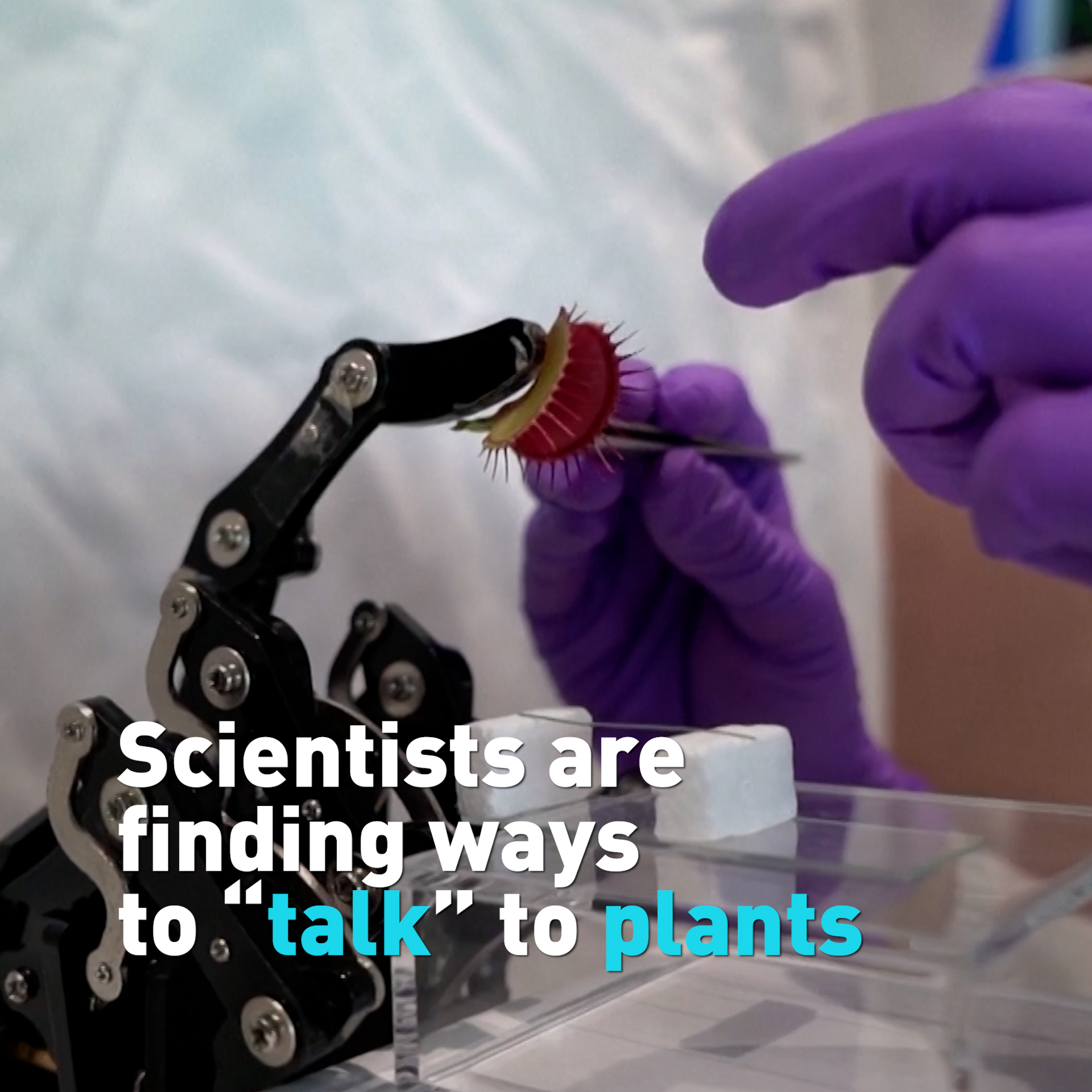01:00

Researchers at Singapore's Nanyang Technological University are using electrodes to communicate with plants.
"Plants are like humans, they generate electric signals, like the ECG (Electrocardiogram) from our hearts," said Luo Yifei, a researcher at the university's School of Materials Science and Engineering. "We developed a non invasive technology to detect these electric signals from the surface of plants without damaging them."
The small conductive electrodes are attached to a Venus flytrap plant and using a mobile app, a phone can tell the plant to close its trap.
They have also removed the trap part of the plant and attached it to a robotic arm. Using the plant's natural circuitry, the hybrid, robot-plant arm can grip something as small as a thin wire.
This research could be used to handle fragile materials that could be damaged by existing, bulkier robotic arms.
Scientists are also listening to the plants too.
Electrical signals from the plants can be plotted and the small fluctuations can help signal the plant's health.
The research could be used to detect plant abnormalities and potential diseases before they overtake the plant. They can also use the data to monitor the environment surrounding the plant.
"Right now we are exploring using plants as living sensors to monitor environmental pollution like gas, toxic gas, or water pollution," Luo said.
Check out The China Report, our new weekly newsletter. Subscribe here!

